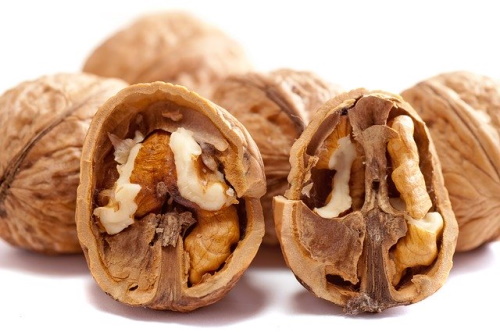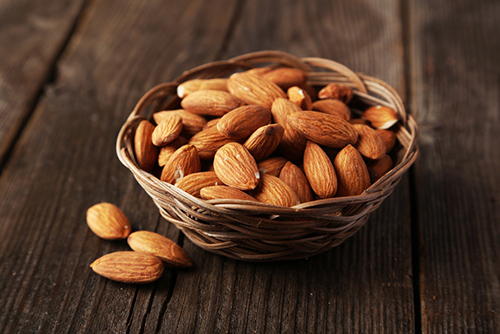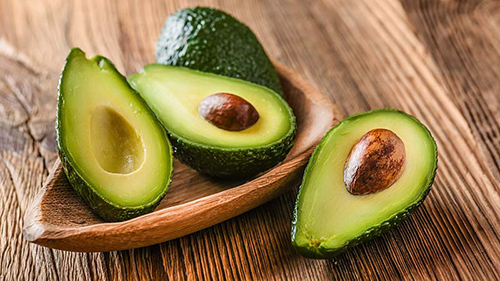Contents
Before we get into foods that help with depression, let’s learn a little more about this serious condition. Depressed individuals, in general, tend to crave refined sweets (pastries, candy, chocolate, etc.) that have very little nutritional value. They also may have an appetite for saturated fat as found in sausages and other meat products.

All of these foods tend to worsen depression, placing the patient in a vicious circle. Special effort is required on the part of the patient and those around him or her to find healthful and attractive foods.
If the desire for sweets is intense sweet dried fruits, honey, or molasses are a more healthful option since, in addition, to sugars, they provide various vitamins and minerals needed specifically to metabolize the sugars.
Whole grains, legumes, nuts, and vegetables prepared simply provide vitality and energy that more sophisticated dishes cannot equal.
Antidepressant drugs do not replace the need to follow a healthful diet and abstain from all other types of drugs, including those considered legal since all of them attack the nervous system.
Foods That Help With Depression
OATS: Oats provide the most important nutrients for neuron function, just like the other foods that help with depression they are nutritious and restorative, which makes them superior among the other foods that help with depression.
WHEAT GERM: This is an excellent source of nutrients for the neurons. It contains octacosanol, a substance that increases fatigue resistance and improves performance.
CHICKPEA: Chickpeas are nutritious and rich B vitamins. They alleviate irritability and nervous depression.

ALMOND: These provide vitamins and minerals that invigorate the nerves and strengthen the muscles. Almonds are an excellent tonic and source of energy, which makes them among the best foods that help with depression.
WALNUT: Walnuts are rich in essential fatty acids, lecithin, phosphorus, and vitamin B6, which invigorate the nervous system.
BRAZIL NUT: These are very rich in vitamin B1, which is necessary to balance the nervous system.
CASHEW: These are rich in magnesium and vitamins B1 and B2, whose lack produces nervousness and irritability.
PINE NUT: Good source of vitamin B1, iron, and proteins. Pine nuts are very nutritious and invigorating.

AVOCADO: These are rich in vitamins B6 and E, iron, and fatty acids. They increase vitality naturally and healthily. Avocados are a great addition to any list of foods that help with depression.
BREWER’S YEAST: Invigorating and revitalizing, due to its large supply of vitamins and minerals, particularly trace elements.
ROYAL JELLY: Nourishes and invigorates the nervous system. It helps with asthenia and tiredness.
More Foods That Help With Depression
LECITHIN: Lecithin is a phospholipid that is present in the neurons. It facilitates the transmission of nerve impulses and can help improve depression.
POLLEN: This is a concentration of nutrients with invigorating and revitalizing effects.
VITAMIN B6: The lack of this vitamin leads to apathy and depression. Whole grains, garlic, and avocado are good sources.
VITAMIN B1: When this is lacking, the nervous system loses tone and emotional balance. The recommended foods that help with depression on this list are all rich in this vitamin.
VITAMIN C: One of the first symptoms of a lack of vitamin C is lethargy and lack of vitality. Fresh fruits and vegetables are essential foods that help with depression.
FOLATES: Their lack leads to fatigue and depression. Legumes and spinach are good sources.
IRON: Its lack produces, in addition, anemia, depression.
Foods to Avoid With Depression
WHITE SUGAR: White sugar and sweets usually lack vitamins and minerals necessary for a properly functioning nervous system. Its consumption aggravates depression even though it can produce a temporary subjective sense of well-being.
SATURATED FAT: Its consumption promotes depression, even though the mechanism for this is not well understood. It is found, above all, in foods of animal origin.
STIMULANT: An increase in the consumption of caffeinated beverages can be a symptom of depression, but at the same time, it aggravates the condition. Caffeine irritates the nervous system and weakens it further despite its apparent stimulating effect.
ALCOHOLIC BEVERAGES: The continuous consumption of alcoholic beverages causes depression. Alcohol depresses the nervous system and is an actual poison for the neurons.
DISCLAIMER: Any and all content on this website is presented solely for educational and informational objectives. You should not rely on the information provided as a replacement for advice, diagnosis, or treatment from a qualified medical expert. If you are pregnant, nursing, or have any preexisting medical concerns, you should talk to your doctor before using any herbal or natural medicines.
REFERENCES
- George D. Pamplona-Roger, M.D. “Encyclopedia Of Foods and Their Healing Power.” George D. Pamplona-Roger, M.D. Encyclopedia Of Foods and Their Healing Power. Trans. Annette Melgosa. Vol. 2. Chai Wan: Editorial Safeliz, 2005. 36.
- Harvard Health Publishing: Nutrition and Depression. (2023, July 20). https://www.health.harvard.edu/blog/diet-and-depression-2018022213309
- National Alliance on Mental Illness (NAMI): Diet and Mental Health. https://heartsandminds.nami.org/articles/make-your-diet-work-for-you/
- Academy of Nutrition and Dietetics: Nutrition and Mental Health. https://www.eatright.org/
- American Psychological Association (APA): Mental Health and Nutrition. https://www.psychiatry.org/news-room/apa-blogs/mental-health-through-better-nutrition
- National Institute of Mental Health (NIMH): Depression. https://www.nimh.nih.gov/health/topics/depression
- American Psychiatric Association (APA): Diagnostic and Statistical Manual of Mental Disorders (DSM-5) (5th ed.). American Psychiatric Publishing. (2013).
